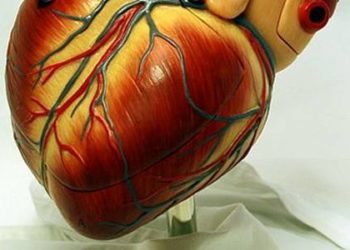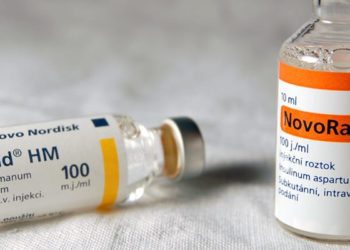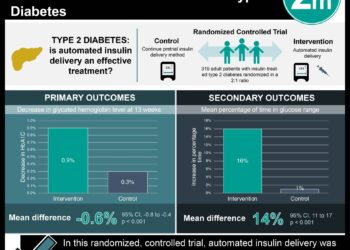Lifestyle factors important in subsequent cardiovascular risk for women with gestational diabetes
1. In this prospective cohort study, history of gestational diabetes (GDM) was associated with increased risk of cardiovascular disease (CVD) later in life.
2. After adjustment, women with GDM who did not go on to developing Type 2 Diabetes (T2DM) did not have an increased CVD risk, whereas women with T2DM only and both GDM and T2DM had statistically significant increases in subsequent CVD risk.
Evidence Rating Level: 2 (Good)
Study Rundown: Gestational diabetes (GDM) may be a risk factor for subsequent hypertension, type-2 diabetes, dyslipidemia and atherosclerosis in women. However, the relationship between GDM and major cardiovascular disease (CVD) has not been clearly defined in a prospective study with careful control for common risk factors. This study aimed to prospectively evaluate the history of GDM in relation to incident CVD risk.
After adjustment for age, pre-pregnancy BMI, and many lifestyle factors, GDM was associated with 43% increased risk of subsequent CVD. However, when adjusted for further lifestyle factors like post-pregnancy weight gain and smoking status the association was moderately attenuated. Interestingly, women who had GDM and did not go on to developing T2DM did not have an increased CVD after multivariate modeling including adjustment for lifestyle factors whereas women who had both GDM and T2DM, and those with T2DM only had 3.7 times increased CVD risk suggesting that the GDM risk may be mitigated through subsequent T2DM diagnosis. Strengths of this study include its prospective design and long follow-up time. Limitations include its homogenous Caucasian population thus influencing generalizability to ethnic minorities with known higher baseline CVD risk.
Click to read the study, published in JAMA Internal Medicine
Relevant Reading: Quantification of the type 2 diabetes risk in women with gestational diabetes: a systematic review and meta-analysis of 95,750 women
In-Depth [prospective cohort]: This prospective cohort study was conducted from1989 to May 2015 using participants from the Nurses’ Health Study II (NHS II) and enrolled 89,479 women who reported at least one pregnancy and no history of cardiovascular disease, cancer or type 1 diabetes. The exposure of interest was self-reported GDM at baseline and was updated every 2 years through repeat questionnaires every 2 years. Women were followed for a median of 25.7 years for the outcomes of self-reported composite of nonfatal or fatal myocardial infarction or stroke. These were confirmed through medical records. Secondary analysis included categorization of the exposure into women with GDM who go on to develop type 2 diabetes and those who do not to help determine if GDM is an independent risk factor. Biennial questionnaires also collected data on behavioral characteristics, health outcomes and lifestyle factors. Multivariable Cox modeling was used to estimate hazard ratios for CVD risk.
The mean (SD) age of participants at baseline was 34.9 (4.7) years with a mean age at first birth of 26.6 (4.6) years. A total of 5292 (5.9%) women reported a history of GDM during the study. There were 1161 incident nonfatal or fatal myocardial infarctions or strokes over 25.7 years of follow up (1.1 events per 1000 person-years). Compared to parous women without GDM, women with GDM had increased risk of CVD during follow-up (adjusted Hazard Ratios [aHR] 1.43, 95%CI 1.12-1.81). Additional adjustment for lifestyle behavioural risk factors including weight gain moderately attenuated the association (aHR 1.29, 95%CI 1.01-1.65). Of women with GDM, 19% went on to develop T2DM. Women with GDM only did not have an increased risk of CVD events when adjusted in the multivariable model and for current lifestyle factors. Women who had both GDM and T2DM and those with T2DM only had increases in CVD risk (aHR 3.71, 95%CI 1.79-7.67 for women with both GDM and T2DM, aHR 3.74, 95%CI 1.85-7.53). This suggests that after adjustment for potential confounders, GDM is not an independent risk factor for CVD risk but is rather mitigated through a T2DM intermediate state.
Image: CC/Flikr
©2017 2 Minute Medicine, Inc. All rights reserved. No works may be reproduced without expressed written consent from 2 Minute Medicine, Inc. Inquire about licensing here. No article should be construed as medical advice and is not intended as such by the authors or by 2 Minute Medicine, Inc.







